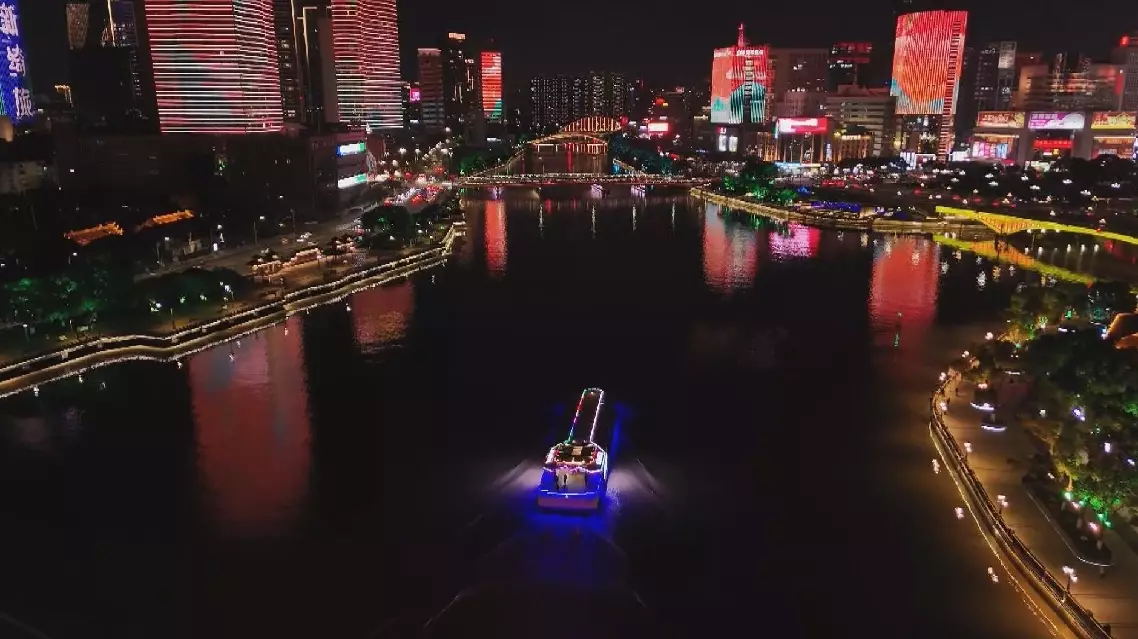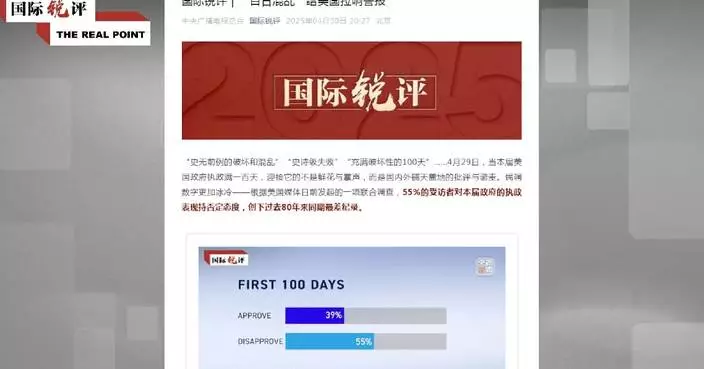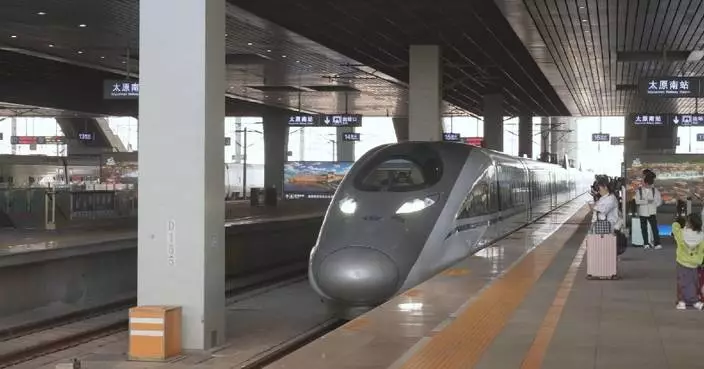Tickets people have used for transportation or other activities have become an evidence to extend the holders' consumption in other scenarios, and thus bring forth a new model of "ticket stub economy" in China, which is getting hot as they give consumers additional discounts in a wide range of consumption scenarios.
More and more places are offering benefits to people holding valid ticket stubs.
In Nanchang, the provincial capital of Jiangxi in east China, nine scenic areas, including the iconic Tengwang Pavilion dating back to 653 AD, offered free admissions to holders of the ticket stubs for either of the two concerts given by Dao Lang, a well-known Chinese singer, in mid April. Dao Lang held two concerts in Nanchang on April 12 and 13, drawing fans to travel to the city from across the country. The enthusiastic fans were seen holding banners at the Tengwang Pavilion to show their love for Dao Lang, and they said the offer made their travel more valuable.
"This trip is really worth it. We attended Dao Lang's concert and visited the Tengwang Pavilion. I'm also going to buy some cultural and creative products," said Liu Liangjun, a fan from southwest China's Chongqing Municipality.
During the period of the two concerts, the scenic areas in Nanchang gained a 140 percent year-on-year increase in their admission booking.
In Jiangxi's Xinyu City, with a hotel invoice, visitors to the Fairy Lake Scenic Area can enjoy discounts when dining in nearby restaurants.
"I'm set to go around nearby villages and try some farm house dishes. With the 20-percent discount offer, we can try some more dishes," said Liao Yanshu, a tourist from central China's Hubei Province.
Since the ticket stub business promotion campaign was rolled out in the Fairy Lake Scenic Area, the surrounding catering outlets have reported an average 20-percent increase in their daily turnover and shopping facilities an 18-percent growth in their daily sales.
"The 'ticket stub economy' is in fact a form of economy of association. To ensure its sustainable and healthy development, local governments should establish cross-departmental task forces to coordinate resource allocation across transportation, culture and tourism, and commerce, while avoiding fragmented and separate responses. Business operators also need to leverage digital tools to accurately identify consumer demands and offer more attractive discount packages, thereby further stimulating the market vitality," said Zheng Yating, an associate researcher at the Economic Research Institute under Jiangxi Academy of Social Sciences.

Ticket stubs drives up consumption
China's waterway passenger traffic during the five-day May Day holiday is projected to reach 7.75 million trips, more than 11 percent higher year on year as sailing continue to gain popularity as a holiday activity in recent years.
The holiday, celebrated annually from May 1-5, is one of China's busiest travel and leisure periods, as people across the country take advantage of the time off to relax, travel and seek out entertaining activities.
Nighttime sightseeing tours are already seeing significant growth this holiday period, with riverfront cities like Liuzhou, Guangzhou, and Ningbo reporting heightened interest.
In Liuzhou City of south China's Guangxi Zhuang Autonomous Region, the Liujiang River -- dubbed the "Hundred-Mile Liujiang" for its scenic waterfront -- is expected to attract 38,400 night cruise passengers during the holiday.
"It feels so comfortable and pleasant in this gentle breeze," said a passenger aboard a river ship.
Guangdong Province's Pearl River cruises have sold tickets for over 900 trips that will take place during the five-day holiday, serving more than 150,000 passengers. To enhance tourism appeal, operators introduced combo tickets bundling daytime river tours with visits to the Guangdong Provincial Museum.
Meanwhile, eco-friendly electric vessels, praised for reduced noise and emissions, dominated the night cruise fleet in the provincial capital of Guangzhou.
In preparation for increased passenger flows, maritime authorities prioritized safety checks on new-energy ships, including inspections of battery systems and crew training.
"We focused on conducting a safety hazard inspection of the battery power equipment of new energy ships and strengthened the inspection of the crew's operation ability of the battery power equipment," said Yao Zhi, vice-captain of the Xihe maritime patrol enforcement brigade under the Neigang Maritime Safety Administration in Guangzhou.
In Ningbo, another coastal city in east China's Zhejiang Province, the estuary of the Yuyao, Fenghua and Yong Rivers has been designated as the starting point of the "Three Rivers Night Tour" route, offering views of the city's bridges and waterfront landmarks.
Local officials implemented real-time monitoring of cruise operations to ensure safety.
"By setting a night cruise ship live monitoring special channel, we provide full-process safety protection for passengers from the moment they board the ship until they all disembark. We focus on conducting full coverage inspections of vessels in the waters around passing passenger ships," said Zhao Houyong, vice-captain of the Jiangxia maritime patrol enforcement brigade of the Sanjiangkou Maritime Safety Administration in Ningbo.

China's waterway to handle over 7.7 mln passenger trips in May Day holiday




















































